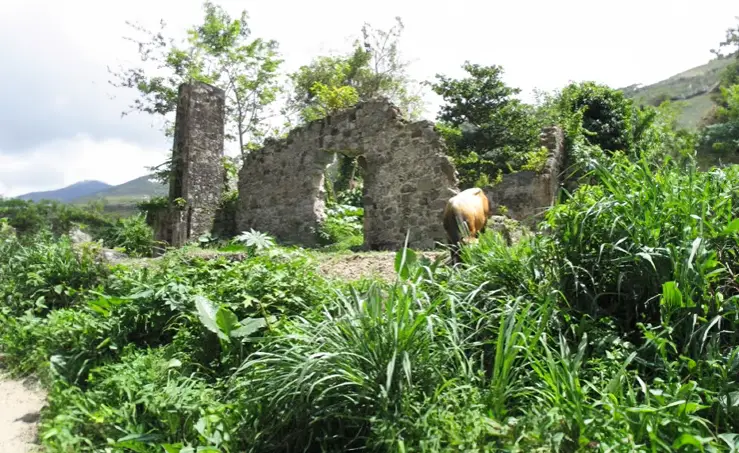Geneva Estate

Geneva Estate is a prominent historical landmark in Dominica, reflecting a complex past of colonial agriculture, social upheavals, and transformation. This estate has been central to key events like the Geneva Uprising of 1974, significantly impacting the island’s socio-economic and cultural development.
History and Development of Geneva Estate
Origins and Early Ownership
Initially established during the colonial era, Geneva Estate was involved in plantation agriculture. Its early ownership under Antony Bertrand, a French Huguenot, marked the commencement of intensive plantation activities and the importation of enslaved Africans.
Changes in Ownership and Economic Role
The estate later came under the ownership of the Lockhart family in 1824 and Elias Nassief in 1949. During its history, Geneva Estate played a significant role in Dominica’s economy, particularly in the coconut industry.
Geneva Estate and Social Dynamics
The Geneva Uprising of 1974
A defining moment in the estate’s history was the Geneva Uprising in 1974, led by Phillip Francis, also known as Unicef. This uprising was a direct response to long-standing land ownership issues and led to notable social changes, including the government acquiring the estate.
Post-Uprising Developments
After the uprising, Geneva Estate saw a shift in land use and distribution, reflecting efforts to address local grievances and promoting more equitable land ownership.
Contemporary Relevance and Legacy
Symbol of Resilience and Cultural Identity
Today, Geneva Estate stands as a testament to Dominica’s journey through historical challenges and achievements. It has also contributed significantly to the cultural identity of Grand Bay, particularly in the realm of folk culture.
Contribution to Dominica’s National Development
The legacy of Geneva Estate continues to influence various aspects of Dominican culture, including music, dance, and language, underscoring its role in the cultural renaissance of the island.
For an in-depth understanding of Geneva Estate’s historical significance, resources like “Plantation Labour Rebellions, Material Culture and Events: Historical Archaeology at Geneva Estate, Grand Bay, Commonwealth of Dominica” by Stephan Lenik provide detailed insights.




